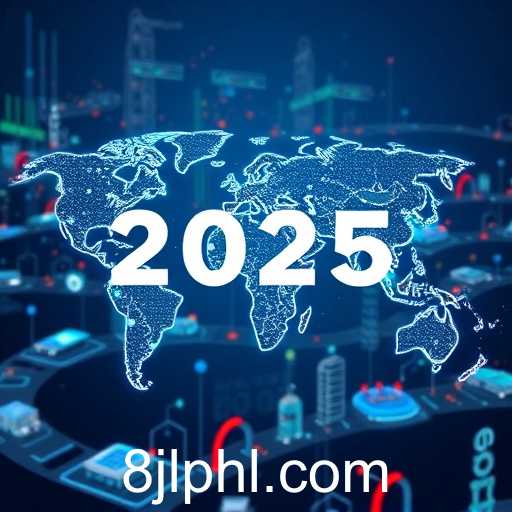
Why Choose Sport in 8jl
- ⚽
Full Coverage
Follow a wide variety of sports, including football, basketball, and more.
- 📊
Detailed Statistics
Access comprehensive data to help you make informed decisions.
- 🎁
Special Promotions
Earn exclusive bonuses and participate in end-of-year offers.
Industry News
- 🏆
Soccer
Watch live matches and enjoy the best betting options.
- 🏀
Basketball
Dive into the on-court action with exclusive stats and analysis.
- 🎾
Tennis
Bet on international tournaments with competitive odds.
Evolving Trends in Online Gaming
Exploring the impact of new innovations and community dynamics on the English online gaming platform 8jl.
- 📖
Study team statistics and performance before betting.
- 🕒
Gamble responsibly and set clear limits.
- 💡
Take advantage of seasonal promotions to maximize your earnings.

AI and Climate: A Turning Point

As we continue to navigate the complexities of 2025, the fusion of artificial intelligence (AI) with efforts to combat climate change has reached a pivotal stage. This integration promises not only significant advancements in technology but also a potential shift in how we address one of the most pressing issues of our time.
In recent months, a spotlight has been cast on how AI technologies are being utilized to enhance climate models, predict environmental changes, and optimize renewable energy systems. With industries increasingly committing to sustainability, AI-driven solutions are proving indispensable in analyzing vast data sets to predict climate impacts accurately. For example, machine learning algorithms are now capable of processing satellite imagery to monitor deforestation and melting ice caps with unprecedented precision.
This year, several tech giants have pledged heightened collaboration in developing AI applications aimed directly at reducing carbon emissions. By refining energy consumption forecasts and optimizing supply chain logistics, these innovations strive for environmental balance and economic efficiency. For instance, AI is already instrumental in managing smart grids, ensuring that renewable sources like solar and wind energy are harnessed optimally without over-reliance on traditional power plants.
Moreover, the cultural dynamics surrounding AI's role in climate action have witnessed a shift. Where once the focus lay primarily on technological feasibility, the discourse now includes considerations of ethical AI deployment and equitable access. Questions about who benefits, who is affected, and how these benefits are distributed are gaining traction. These issues underscore a broader commitment to ensure that technological progress dovetails with sustainable development goals.
Looking ahead, the intersection of AI and climate change is poised to foster innovative pathways that could redefine our environmental strategies. Policymakers and technologists alike must ensure that the designs of AI frameworks support long-term climate resilience, marrying efficiency with humanity's overarching environmental responsibilities.
In conclusion, as we approach the latter half of 2025, the synthesis of AI and climate strategies represents a noteworthy chapter in the global narrative on sustainability. Collaboration across sectors, coupled with conscientious technology application, is essential to unlock the potential needed to safeguard our planet's future.
Industry News
-

Exploring the evolving landscape of online gaming and how it's reshaping entertainment in 2025.
-

Explore the impact of 8jl on the gaming industry and its evolution in the era of advanced technology and virtual reality.
-

Exploring how 8jl is transforming the landscape of online gaming through innovative community engagement and cutting-edge technology.
-

An exploration of current trends in digital transformation, including AI integration, sustainability efforts, and cybersecurity challenges.
-

Explore the latest trends and dynamics in the online gaming world in 2025, focusing on the role of platforms like 8jl and the impact of technological advancements.
-

An exploration of the evolving online gaming landscape, with a focus on emerging trends, community impacts, and technological advancements.
-

Exploring the revolutionary advancements on the 8jl English game website and its impact on the gaming community.
-

Explore the latest trends and innovations in the digital gaming sector as it evolves in 2025.


